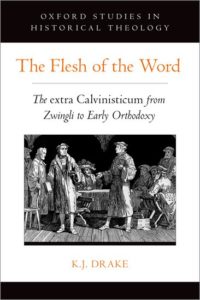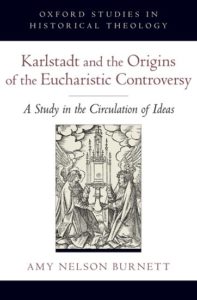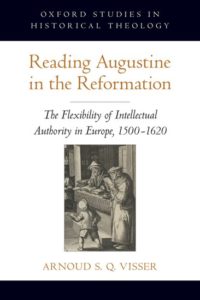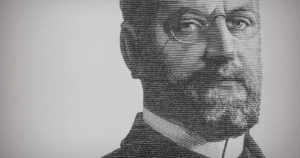
Author’s Corner: Oxford Studies in Historical Theology
Each week on Credo we welcome you to join us in the Author’s Corner where we will meet a set of authors whose recent books deserve your attention and might even help you grow in your knowledge of theology, history, philosophy, and the scriptures. We hope the Author’s Corner can keep you up-to-date on the most important books published today and where you can find them.
On today’s Author’s Corner, we present you with a selection from the Oxford Studies in Historical Theology, edited by Richard A. Muller (Oxford University Press).
Oxford University Press established in 1994 a new series of original monographs devoted to the history of Christian thought from its early and medieval beginnings to its later development in the modern period. The underlying assumption held from the first was that Christian ideas from the past can best be understood when scholars present them in their proper historical and cultural context. For 20 years the distinguished authors in this series have treated a wide variety of intellectual problems from the Christian past and, by so doing, have redefined the discipline of historical theology for the foreseeable future.
T he Flesh of the Word: The extra Calvinisticum from Zwingli to Early Orthodoxy (OUP, 2021) by K. J. Drake
he Flesh of the Word: The extra Calvinisticum from Zwingli to Early Orthodoxy (OUP, 2021) by K. J. Drake
The extra Calvinisticum, the doctrine that the eternal Son maintains his existence beyond the flesh both during his earthly ministry and perpetually, divided the Lutheran and Reformed traditions during the Reformation. This book explores the emergence and development of the extra Calvinisticum in the Reformed tradition by tracing its first exposition from Ulrich Zwingli to early Reformed orthodoxy. Rather than being an ancillary issue, the questions surrounding the extra Calvinisticum were a determinative factor in the differentiation of Magisterial Protestantism into rival confessions. Reformed theologians maintained this doctrine in order to preserve the integrity of both Christ’s divine and human natures as the mediator between God and humanity. This rationale remained consistent across this period with increasing elaboration and sophistication to meet the challenges leveled against the doctrine in Lutheran polemics.
The study begins with Zwingli’s early use of the extra Calvinisticum in the Eucharistic controversy with Martin Luther and especially as the alternative to Luther’s doctrine of the ubiquity of Christ’s human body. Over time, Reformed theologians, such as Peter Martyr Vermigli and Antione de Chandieu, articulated the extra Calvinisticum with increasing rigor by incorporating conciliar christology, the church fathers, and scholastic methodology to address the polemical needs of engagement with Lutheranism. The Flesh of the Word illustrates the development of Christological doctrine by Reformed theologians offering a coherent historical narrative of Reformed Christology from its emergence into the period of confessionalization. The extra Calvinisticum was interconnected to broader concerns affecting concepts of the union of Christ’s natures, the communication of attributes, and the understanding of heaven.
K arlstadt and the Origins of the Eucharistic Controversy: A Study in the Circulation of Ideas (OUP, 2011) by Amy Nelson Burnett
arlstadt and the Origins of the Eucharistic Controversy: A Study in the Circulation of Ideas (OUP, 2011) by Amy Nelson Burnett
The debate over the Lord’s Supper had momentous consequences for the Reformation, causing the division of the evangelical movement, influencing the formation of political alliances, and contributing to cultural differences among the Protestant territories of Germany and Switzerland. Karlstadt and the Origins of the Eucharistic Controversy is the first full-length study of the beginning of that debate. Going beyond the traditional focus on Martin Luther and Ulrich Zwingli, it emphasizes the diversity of the “sacramentarian” challenge to traditional belief in Christ’s corporeal presence in the bread and wine of the Eucharist, and it re-evaluates the significance of Luther’s colleague, Andreas Bodenstein von Karlstadt, for the debate. Burnett describes Luther’s earliest criticisms of the mass and the efforts in Wittenberg to reform liturgical praxis to correspond with his ideas. She then looks at pamphlets written by other reformers to show how Luther’s understanding of the sacrament was adapted and modified outside of Wittenberg. Ultimately, Burnett shows how Karlstadt’s eucharistic pamphlets introduced into the public debate arguments that would become standard Reformed criticisms of the Lutheran position. The book also demonstrates the influence not only of Erasmus but also of John Wyclif and the Hussites for discussions of the sacrament, highlights the role of the reformers of Basel and Strasbourg for developing the “Zwinglian” understanding of the Lord’s Supper, and draws attention to the early eucharistic theology of the Silesians Kaspar Schwenckfeld and Valentin Krautwald. This book will be an indispensable guide for readers seeking to understand the issues surrounding the outbreak of the eucharistic controversy in the sixteenth century.
R eading Augustine in the Reformation: The Flexibility of Intellectual Authority in Europe, 1500-1620 (OUP, 2011) by Arnoud S. Q. Visser
eading Augustine in the Reformation: The Flexibility of Intellectual Authority in Europe, 1500-1620 (OUP, 2011) by Arnoud S. Q. Visser
In sixteenth-century Europe, Augustine was received as one of the most prominent religious and philosophical authorities, yet the various parties appropriated his thought in different, often contrasting ways. Augustine was claimed as a thoroughly Lutheran, Catholic, or Calvinist thinker, and even hailed as the ideal Erasmian pastor. These wildly contrasting receptions raise crucial questions about the significance of Augustine’s thought in the Reformation period. They also show the complex relationship between religious change and the new intellectual culture of Renaissance humanism.
Drawing on a variety of printed and manuscript sources, Arnoud Visser breaks new ground in three ways. He systematically grounds Augustine’s theological reception in the history of reading and the material culture of books and manuscripts. He does not confine his examination to particular confessional parties or specific geographic boundaries, but offers a cross-confessional account of Augustine’s appropriation in early modern Europe. Finally, he provides crucial insight into the nature of intellectual authority in the early modern period.
Central in this study are the production, circulation and consumption of Augustine’s works. Visser examines the impact of the new art of print, the rise of humanist scholarship, and the emerging confessional divisions on Augustine’s reception. He shows how editors navigated a wealth of patristic information by using search tools and anthologies, and explains how individual readers used their copies and how they applied their knowledge in public debates. Reading Augustine in the Reformation argues that emerging confessional pressures did not restrict intellectual life, as has often been claimed, but promoted exciting new areas and modes of scholarship.

